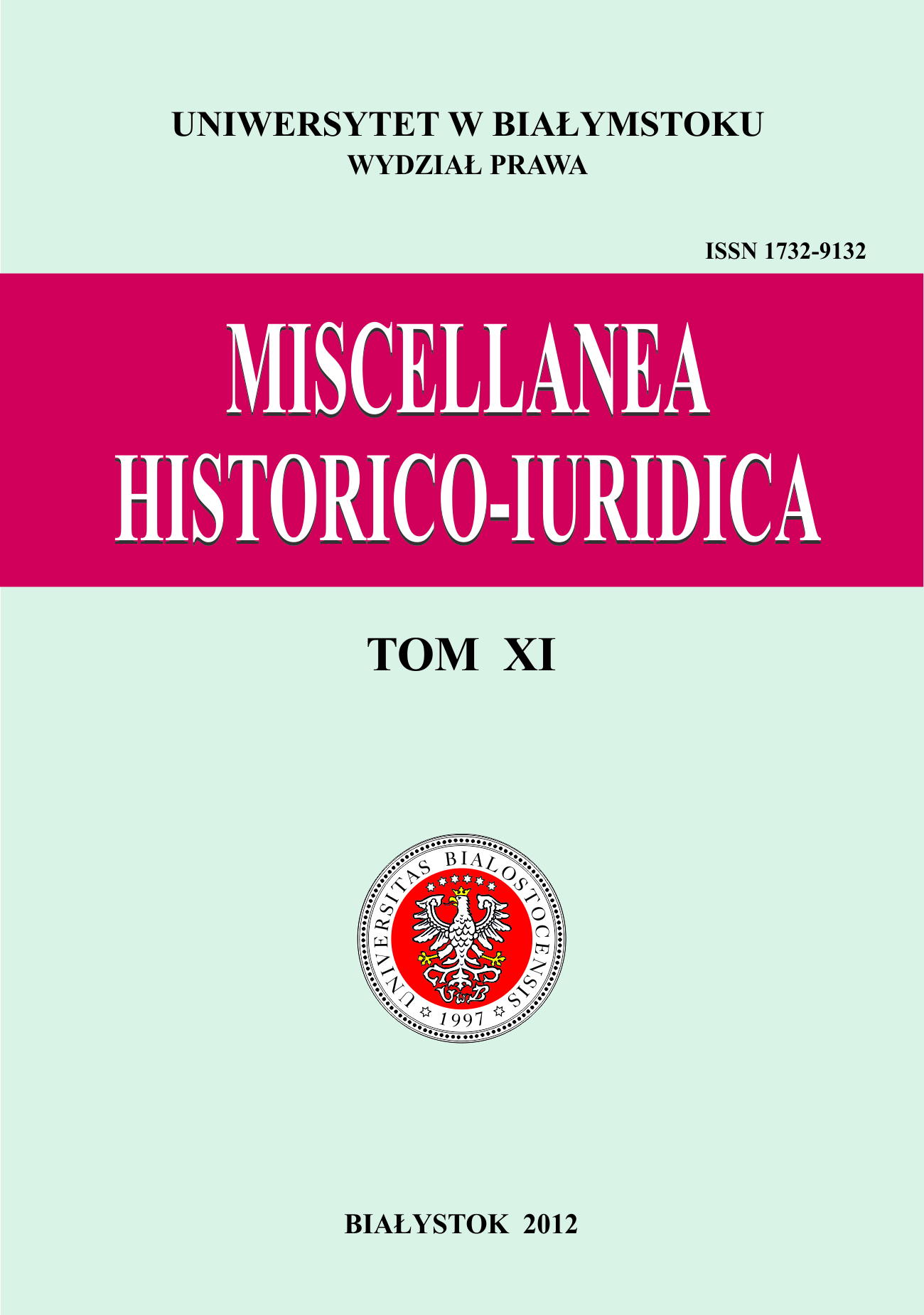Abrogation of legal effects of usurpations in the late Roman Empire
Keywords:
usurper, Roman constitutional law, Constitutions, abrogationAbstract
Usurpations were not unusual situations in Ancient Rome. However, the term “tyrranus” was understood differently from its modern meaning. This word technically means “someone who came to power unlawfully”, but in fact a person defeated by a new ruler was called an usurper, regardless of a way he had come to power. In such a way, e.g. Licinius was declared “tyrranus” although he had come to power as a legal augustus. Constitutions against usurpers in the Theodosian Code do not constitute a homogenous group. We could divide them into acts regarding an usurper’s legislation, acts regarding civil law actions (e.g. slave emancipations), acts regarding public law actions (e.g. nominations of magistrates) and acts regarding the emperor’s sentences. It is meaningful that there is no usurper against whom all the above-mentioned types of constitutions were promulgated. Civil law acts and sentences were generally upheld. In most cases, legislation was abolished only to the extent in which it was contra ius. Only Constantinus against Licinius (CTh. XV, 14, 1) and Honorius and Theodosius II against Heraclianus (CTh. XV, 14, 13) decided to abrogate the entire the legal output of the usurpation. Valenitianus II, Theodosius II and Honorius were the only emperors (except CTh XV, 14, 13) who abrogated all sentences of the usurpers. In almost all cases, nominations made by the usurper were annulled. However, while all usurpations (except Licinius’s usurpation) had taken place only in its Western Part, it should be noticed that all the analyzed constitutions were promulgated by all simultaneous rulers of the Empire even after 395 AD. The question is why Theodosian compilers decided to include the analyzed constitutions into the Code. In my opinion, the most probable answer is that the Chapter De infirmandis... should have served for the legitimation of the rules of the current Emperor, as until the end of the Empire there were no rules of succession of power. In all analyzed constitutions, the legal emperor referred to an output of the illegal ruler. Theodosius, evoking those constitutions and demonstrating his continuity with their authors, presented himself as the legal ruler and put all his opponents in the position of usurpers.







